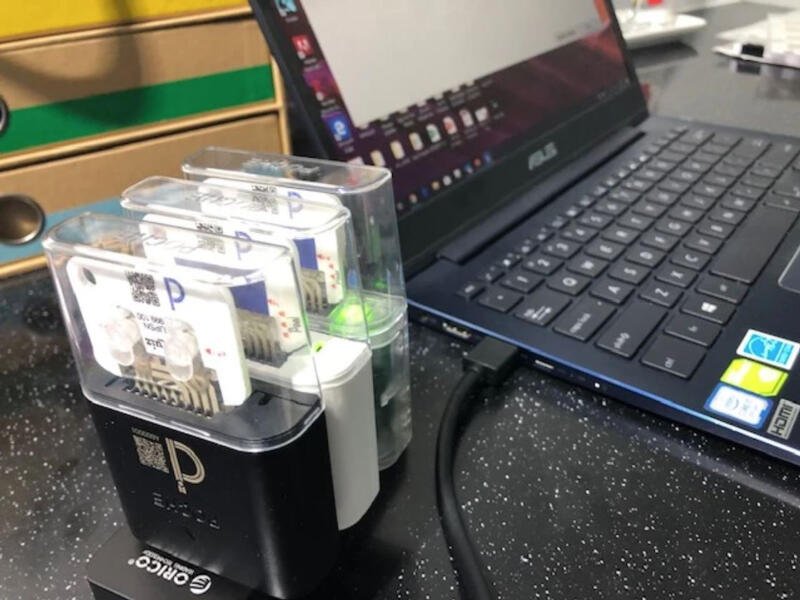
Photo Credit: Cell ID Pte. Ltd., Singapore
Cell ID Pte. Ltd., a Singapore-incorporated med-tech company, is selling a palm-sized portable genetic test kit that uses an app on a laptop to detect, anywhere, at any time, if a person has COVID-19. Called the Quiz PCR Biochip, the test uses biotechnology to perform two tests at a time outside of the laboratory.
Positive results are confirmed in as fast as five minutes and negative results are returned within an hour. A QR code on the biochip also offers traceability which allows healthcare providers to quickly identify, and electronically deliver the test results to the person being tested.
“Quiz PCR Biochips are affordable, single-use genetic tests that can detect COVID-19, anywhere at any time,” says the inventor, Xander Sim, who is the Chief Technology Officer and co-founder of Cell ID. “Currently, we can manufacture 8.5 million biochips in a month, which is 17 million tests.”
To operate the test, less than two hours of training is required. The test requires a tiny amount (10µl) of a nasal swab or saliva specimen to be applied to the biochip, which when plugged into a laptop, runs a real-time RT-LAMP assay for the qualitative detection of SARS-CoV-2 RNA. Two genetic tests are able to run concurrently using the same or different protocol - PCR tests or RT-LAMP assay. The biochips are hot-swappable, meaning that the pairs of tests can run on-demand without the waiting time associated with batch processing.
“We designed the Quiz PCR Biochip to be free of the cold-chain limitations of conventional tabletop PCR tests found in laboratories,” added Sim. “The Quiz PCR Biochip is capable of thermocycling for PCR tests, as well as single temperature operation for RT-LAMP assay. Our RT-LAMP assay fully meets the 95%CI accuracy standard.”
The efficacy of the biochips has been tested in Singapore in collaboration with local healthcare agencies at two quarantine facilities (EXPO and a foreign workers dormitory) between July and October 2020. And separately, a third-party laboratory validated the test’s efficacy in Switzerland in November 2020.




